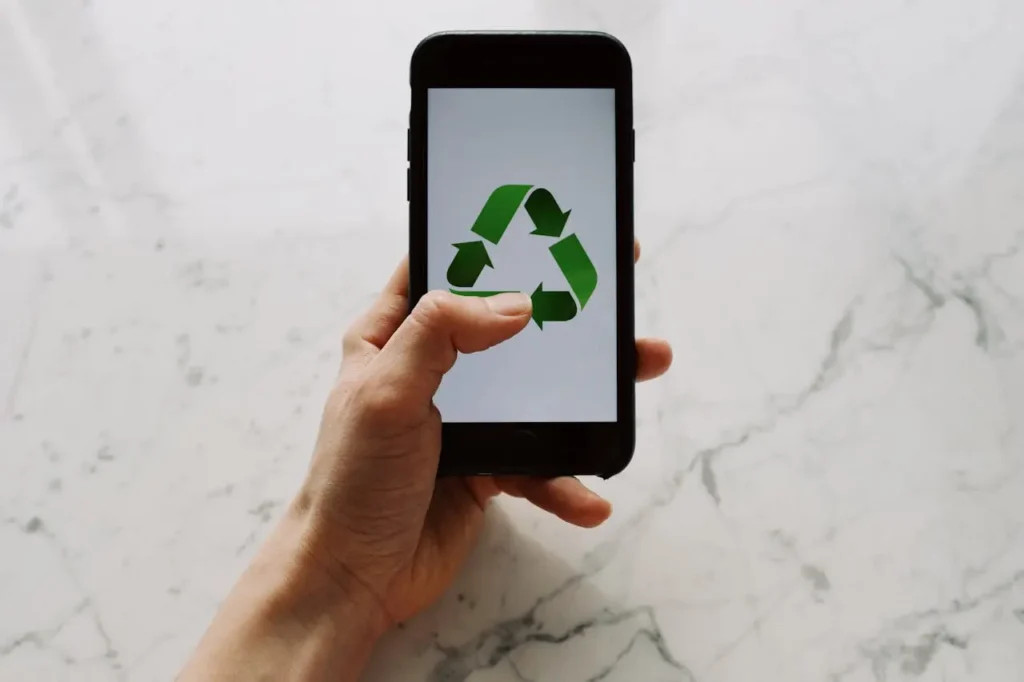
What is an eco-label or certification?
Definition
An eco-label or certification is a distinction awarded to products, services or organizations that meet specific environmental criteria. these labels, often issued by independent organizations, guarantee that the practices used limit the impact on the environment. they can concern different areas, such as food, energy, construction or textiles, and aim to encourage sustainable and responsible choices.
What are the main objectives of eco-labels?
Eco-labels aim to promote environmentally friendly practices while raising consumer awareness. their main objective is to reduce the environmental impact of products, services or organizations by encouraging more sustainable processes. they also provide transparency on the environmental criteria respected, allowing consumers to make informed choices. by promoting committed stakeholders, these labels also encourage innovation and the adoption of eco-responsible solutions. finally, they help address global environmental issues, such as the fight against climate change, the preservation of natural resources and the reduction of waste.
Why are environmental labels and certifications important?
A guarantee for consumers
Eco-labels offer consumers assurance on the quality and environmental impact of products or services. they distinguish companies committed to sustainable practices. thus, these labels help buyers make informed choices, by favoring products that respect the environment and natural resources. they also increase transparency, by certifying that the commitments displayed do not fall within the scope of greenwashing. eco-labels are therefore an essential benchmark for adopting more responsible consumption that is aligned with current environmental issues.
A tool for promoting sustainable practices
Eco-labels encourage companies to adopt sustainable practices by promoting their efforts to reduce their environmental impact. by defining strict criteria, they encourage innovation and continuous improvement in areas such as resource management, energy or materials. these certifications also help to raise awareness among economic players and consumers of the importance of responsible production and consumption. by rewarding ecological initiatives, the labels help to establish higher standards, thus promoting a transition towards environmentally friendly economic and social models.
Response to environmental issues
Eco-labels offer a concrete solution to environmental challenges, such as climate change, loss of biodiversity and the depletion of natural resources. by promoting sustainable practices, they encourage the reduction of greenhouse gas emissions, the preservation of ecosystems and the responsible use of raw materials. these certifications also encourage the adoption of circular and low-carbon models. by raising awareness among businesses and consumers, eco-labels play a key role in the ecological transition.
Your free carbon footrpint awaits!
Sign up for our free trial, answer 20 questions, and receive your 1st carbon footprint!
The main ecological labels and certifications to know
Labels for food products
Labels for food products guarantee practices that respect the environment, health and social conditions. for example, eco score evaluates the ecological impact of food products to help consumers make informed choices. the organic agriculture (ab) label certifies products from agricultural practices without chemical pesticides or GMOs. finally, fairtrade/max havelaar promotes fair trade, supporting producers while encouraging environmentally friendly practices. these labels make it possible to reconcile responsible consumption and support for sustainable sectors.
Labels for non-food products
Labels for non-food products certify sustainable practices in various sectors. b-corp and b-lab recognize companies committed to an approach that favors the environment. the lucie label promotes corporate social responsibility. the european ecolabel guarantees high ecological performance for various products, such as detergents or textiles. FSC (forest stewardship council) certifies sustainable forest management for wood and paper products. finally, oeko-tex ensures that textiles meet strict criteria to limit harmful substances. these labels encourage responsible and sustainable choices for consumers.
Labels for buildings and constructions
Ecological labels for buildings certify environmentally friendly constructions. eco design encourages sustainable practices from the design of infrastructures. HQE (high environmental quality) evaluates the environmental performance and comfort of buildings. BREEAM (building research establishment environmental assessment method) is an international label focused on energy efficiency and ecological impact. LEED (leadership in energy and environmental design) certifies sustainable buildings by integrating renewable energies and ecological materials. these labels promote sustainable real estate projects, limiting their carbon footprint while improving the quality of life of occupants.
Energy labels
Energy labels guarantee practices aimed at reducing the carbon impact of activities. carbon neutral and zero carbon certify initiatives that fully offset their co2 emissions. the low carbon labels and the BCC – bilan carbone conforme support projects that limit emissions while promoting the energy transition. the carbon database and low carbon provide tools to measure and improve environmental performance. these certifications encourage the use of renewable energies, energy efficiency and innovative projects to achieve climate objectives.
How to obtain an eco-label or certification?
To obtain an eco-label or certification, a specific process must be followed. first, the company or product must meet specific criteria established by the certification body. this often involves an in-depth analysis of the environmental impact, such as energy consumption, co2 emissions or the origin of the materials.
Then, a formal application is filed with the relevant body, accompanied by the necessary evidence. this step may include audits, inspections or tests to verify compliance with the requirements. once the criteria are met, the label or certification is granted for a fixed period, usually renewable. during this period, regular checks may be carried out to ensure that the standards are maintained. finally, companies and organizations can communicate about obtaining the label in order to promote ecological commitment and strengthen the trust of consumers or partners.
The advantages and limits of ecological labels and certifications
Ecological labels and certifications have many advantages. they offer a guarantee of quality and sustainability for consumers, helping them to make more informed choices. for companies, they strengthen their credibility, attract customers who are sensitive to environmental issues and promote access to new markets. in addition, these labels encourage responsible practices, such as reducing co2 emissions or using sustainable materials, thus helping to preserve the environment and respect international commitments such as the paris agreement.
However, these certifications also have limitations. the process of obtaining them can be costly and time-consuming, especially for small businesses. some labels lack transparency or do not always meet the high expectations of consumers. finally, the proliferation of labels can create confusion, making it difficult to distinguish between reliable certifications and those that are less so. a rigorous evaluation is therefore essential.
How to recognize a reliable eco-label?
To identify a reliable eco-label, it is essential to check several criteria. first, it is advisable to favor labels recognized by official or independent organizations, such as ISO certifications or european labels. a transparent label must provide clear information on its evaluation criteria and its award process. in addition, the environmental scope must be measurable and based on scientific data. finally, make sure that the label is regularly audited by independent third parties to guarantee its credibility. be wary of labels self-declared by companies, which may lack rigor or be greenwashing.



